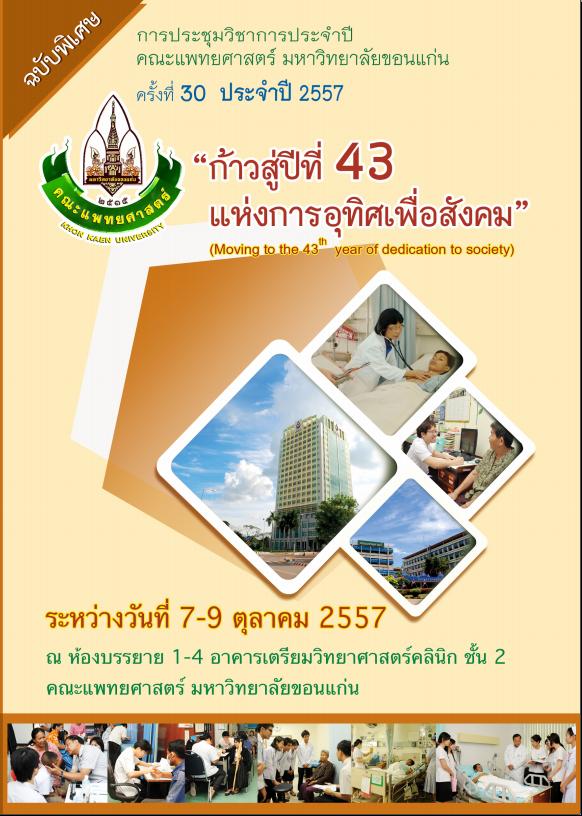Work-related Quality of Life among Medical Residents at a University Hospital in Northeastern Thailand
Keywords:
quality of worklife, residents, Work-related Quality of LifeAbstract
Backgroung : Work related quality of life among medical residents could affect the quality of medical care and have never been studied . The objective of this study was 1) to study of work-related quality of life among medical residents at a university hospital in northeast of Thailand. 2) to determine the association between the personal factors and quality of work life among medical residents.
Methods : A descriptive study was used to describe the quality of work life the medical residents. The study population consisted of all 375 residents affiliated with the university hospital. A Thai version of a self-administered work-related quality of life scale was used for data collection.
Result : Testing the reliability was found Cronbach’s alpha 0.908. Two hundred and fifty nine out of 375(68.3%) completed the questionaires. The study found that the residents’ mean rating for overall work-related quality of life was 113.8 out of a possible 170 (SD 14.8). Most residents rated quality of work life as moderate (76.6%). The seven sub-factors on the scale were rated as: moderate to high for employee engagement and control at work, moderate for home/work interface, general well-being and working conditions, high - moderate for job career satisfaction, and low-moderate for stress at work. Relationships between personal factors and quality of work-life were analysed using binary logistic regression. Residents in minor wards had higher quality of worklife ratings than those in placed in major wards (OR 2.522, 95%CI : 1.37,4.63 ). Residents who had less than, or equal to, 8 duty shifts per week had higher quality of work life ratings than those with more than eight duty shifts per week (OR 2.263, 95%CI : 1.16,4.41). Similarly, residents with less than, or equal to, 80 hours per week had higher quality of work life rating than those working more than 80 hours per week (OR 2.344, 95%CI : 1.17,4.72). When analyzing these factors (subgroup analysis) found that are correlated significant with high quality of work life is less than, or equal to 8 duty shifts per week found minor wards had higher quality of work life ratings than those major ward (OR 2.387, 95%CI: 1.03, 5.51) less than, or equal to 80 hours per week found minor wards had higher quality of work life ratings than those major ward (OR 2.622, 95%CI: 1.15, 5.98).
Conclusion : Therefore, resident and institute should be manage and reduce stress in workplace including properly resident




